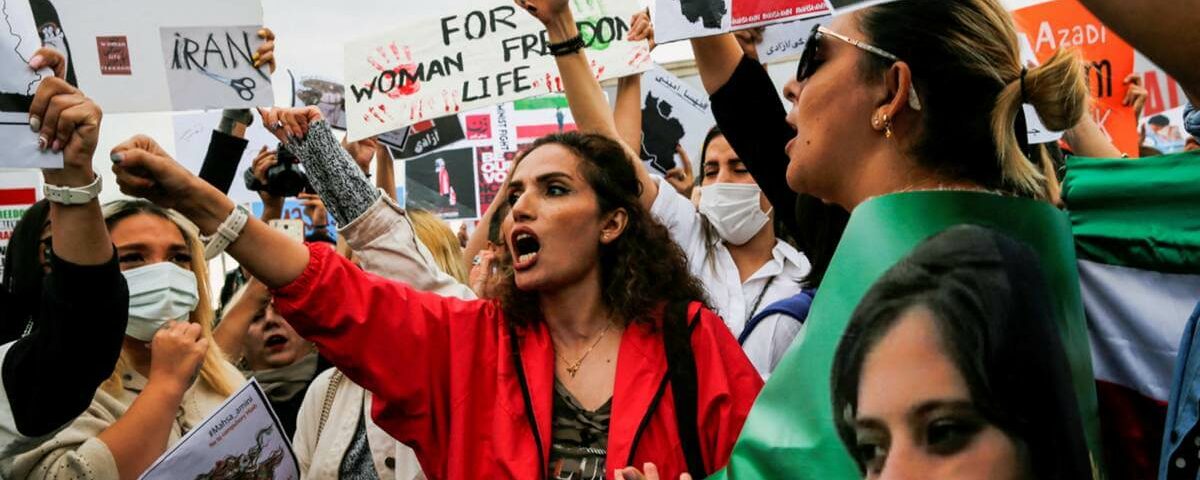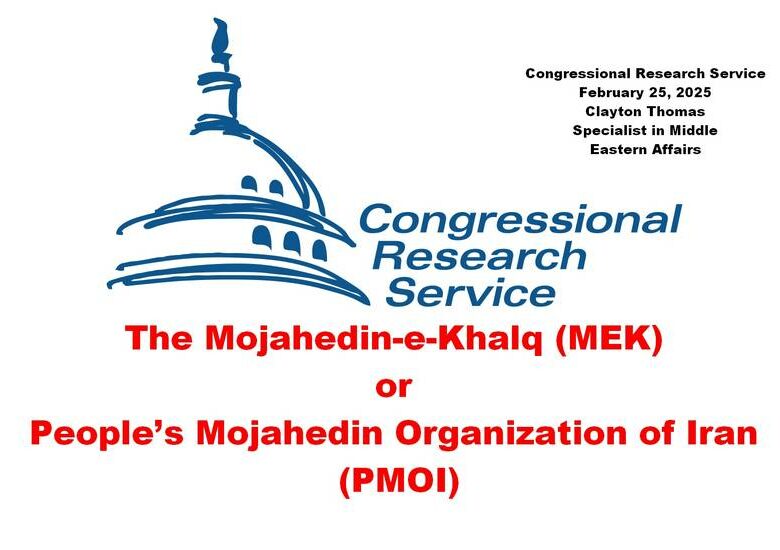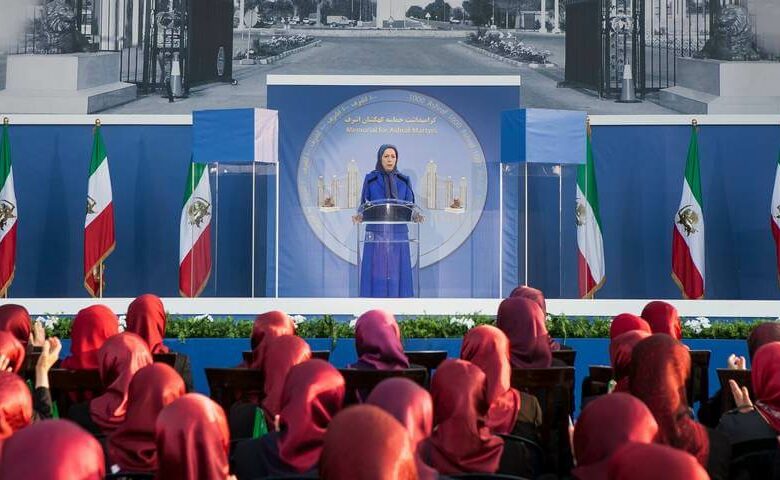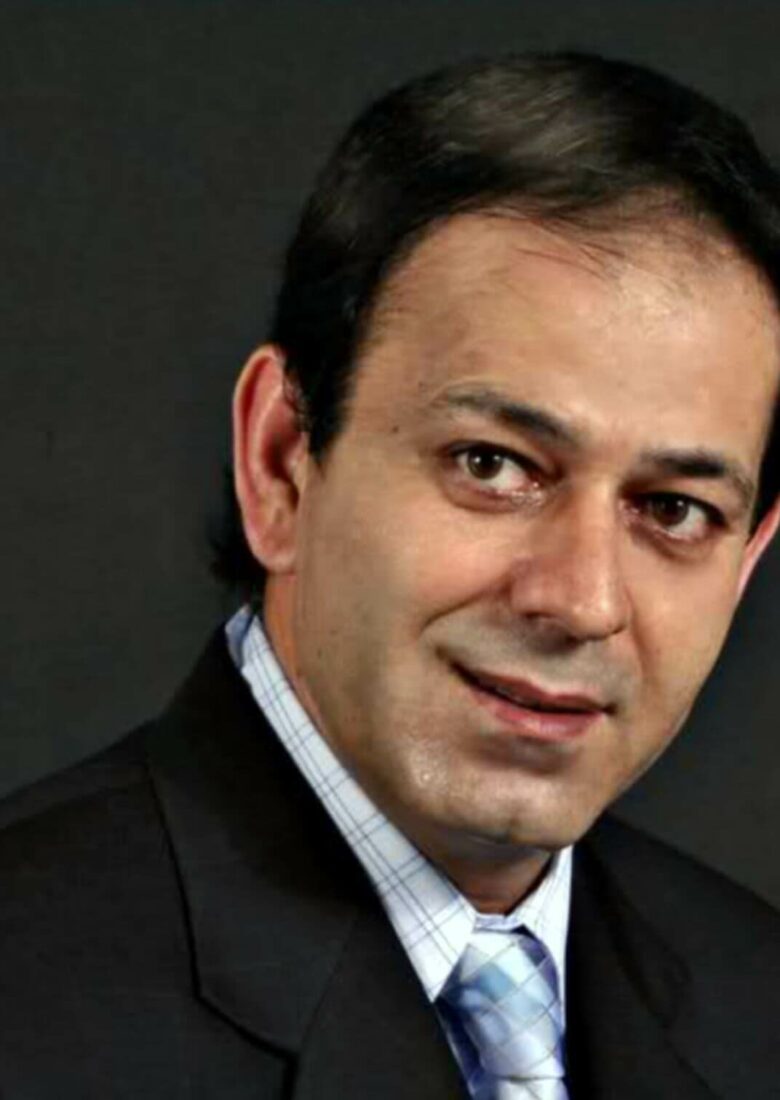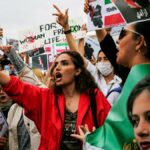
Femmes, Vie, Liberté : Maryam Rajavi et les contradictions de l’émancipation au sein de l’OMPI
January 7, 2025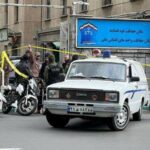
Les juges Moghiseh et Razini assassinés à Téhéran : La colère d’un peuple face à l’injustice
January 19, 2025The People’s Mojahedin Organization of Iran (PMOI), founded in the 1965s, initially positioned itself as a militant group advocating for women’s liberation and social justice. However, over the decades, the organization has evolved into an authoritarian system where loyalty to the leadership, embodied by Massoud and Maryam Rajavi, takes precedence over personal relationships and the emotions of its members, especially women. While the PMOI has long championed female emancipation, its internal regime has increasingly tightened control over the personal and emotional lives of its members, imposing strict oversight, particularly over women.
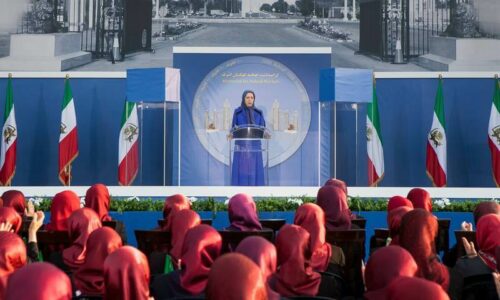
Maryam Rajavi wearing an Islamic headscarf delivers a speech to female mujahideen in Albania
The Destruction of the Family Unit and Repression of Emotions
As part of the second phase of the ideological revolution initiated by Massoud and Maryam Rajavi in 1989, the PMOI dismantled the family unit. Forced divorces were imposed on members to sever familial and personal ties, seen as obstacles to complete dedication to the cause and the leadership. According to Massoud Rajavi, love and human emotions belonged solely to the revolutionary cause and had to be entirely devoted to the fight against the Iranian regime.
Within the PMOI, women were idealized as “mojahedat”—resistors embodying ideological purity and total sacrifice. However, this image of the revolutionary woman is juxtaposed with rigid control over their private and emotional lives. Women in the PMOI were required to renounce personal desires and any form of affectionate relationships. Their sexual and romantic lives were suppressed in the name of absolute commitment to the leadership.

Femmes moudjahidines manœuvrant des chars en Irak.
Mujahideen women operating tanks in Iraq
The Contradiction with the “Women, Life, Freedom” Movement
The slogan “Women, Life, Freedom,” raised by Iranian women in their struggle for autonomy and the end of oppression, directly clashes with the internal reality of the PMOI. While the movement in Iran demands genuine liberation, the women in the PMOI remain under strict control, particularly regarding their appearance and religious practices.
Maryam Rajavi and other members of the PMOI have not removed their hijabs or cut their hair in protest against the Iranian regime. Although they claim to defend women’s freedom, they continue to observe traditional Islamic rites, pray in a conventional manner, and impose the wearing of the hijab within the organization. Despite their rhetoric about emancipation, they submit to an ideological framework that controls their personal lives, contradicting the very fight for women’s freedom promoted by the “Women, Life, Freedom” movement.
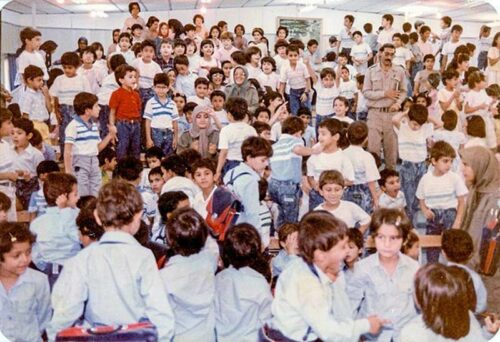
Forced separation of children from their families and their relocation to Europe – Camp Ashraf, Iraq, 1991.
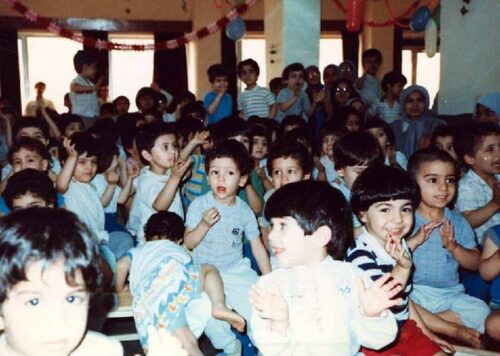
Forced separation of children from their families and their relocation to Europe – Camp Ashraf, Iraq, 1991.
Forced Divorces, the Collapse of the Family Unit, and the Exploitation of Children
The destruction of families within the PMOI extended beyond adult relationships. In 1989, nearly 1,000 children lived in the Ashraf camps in Iraq. However, with the dismantling of the family unit, these children were separated from their parents and sent to European countries, Canada, and the United States under the pretext of protecting them from bombing during the Gulf War. Once they reached adulthood, many of these children were sent back to Ashraf and trained militarily to become soldiers in the fight against the Iranian regime. Some of them lost their lives fighting in the border areas between Iraq and Iran.
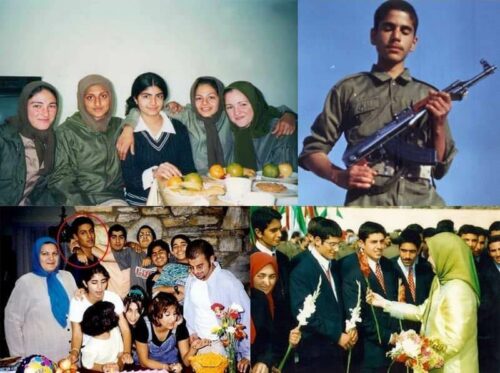
Forced separation of children from their families and their relocation to Europe – Camp Ashraf, Iraq, 1991.
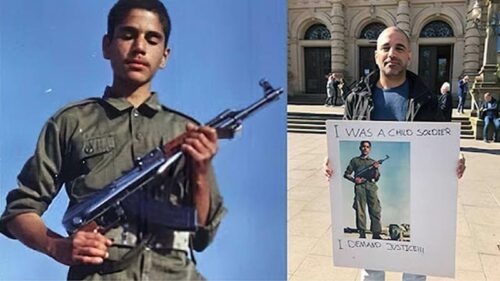
Amir Yaghmaei, former child soldier – Forced separation of children from their families and relocation to Europe – Camp Ashraf, Iraq, 1991.
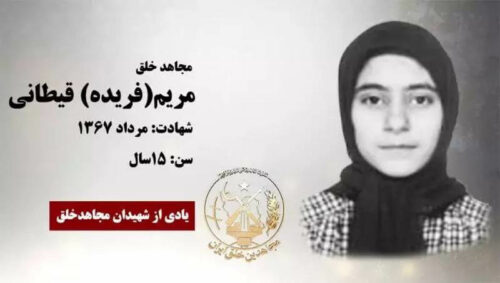
Maryam (Farideh) Qeytani, Child killed in military operation against Iranian army, Operation Foroughe Javidan or Operation Eternal Light, MeK’s – August 20, 1988 Place of Birth: Tehran Occupation: Student Age: 15 Place of Martyrdom: Kermanshah
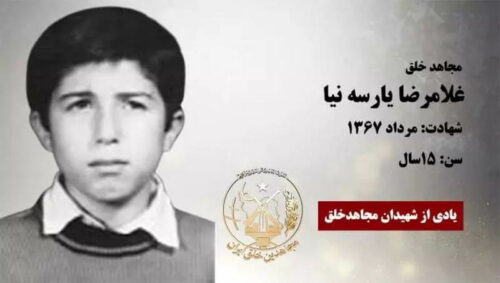
Gholamreza Yarsehnia, Child killed in military operation against Iranian army, Operation Foroughe Javidan or Operation Eternal Light, MeK’s – August 20, 1988
Place of Birth: Tehran
Occupation: Student
Age: 15
Place of Martyrdom: Kermanshah
The Contradiction Between Defending Women’s Rights and Submitting to Ideology
While women in the PMOI are often presented as role models of revolution, they are subjected to strict control over their personal lives. Far from experiencing genuine emancipation, they are governed by an ideology that demands self-sacrifice in the name of the cause. In this framework, their autonomy is limited, and their personal lives—including their emotions—are directed by the authority of Massoud and Maryam Rajavi.
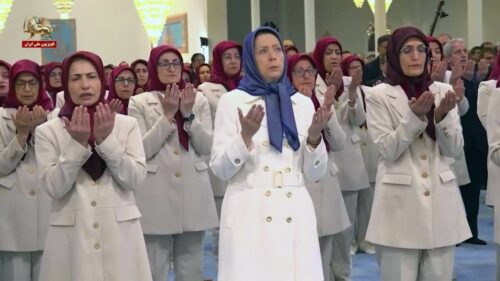
Maryam Rajavi wears an Islamic headscarf during an Islamic prayer in Albania
Conclusion: A Fight for Freedom Beyond Ideology
One of the greatest paradoxes of this situation lies in the fact that the PMOI, despite claiming to be a defender of women’s rights, imposes a vision of women that closely resembles the Iranian regime’s approach rather than true liberation. While the women of the “Women, Life, Freedom” movement fight for individual freedom, the end of patriarchy, and genuine equality, the women in the PMOI are bound to follow a restrictive ideological regime.
It is therefore crucial to rethink the notion of women’s freedom, which cannot be reduced to ideological discourse. The struggle of Iranian women for freedom—whether inside or outside the PMOI—must be grounded in individual autonomy, respect for personal choices, and true equality.


